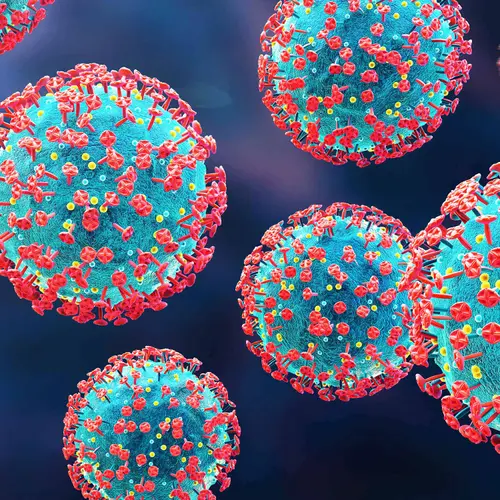David Fawcett survived the shock of learning he was HIV-positive in 1988. It wasn't until 4 years later that the full reality of his situation set in.
Hospitalized with non-Hodgkin's lymphoma, a cancer that starts in the immune system, Fawcett's doctor told him he would likely die.
"There was a whole vortex of feelings that just weighed me down. It was difficult to think about ever being able to climb out," says Fawcett, now 62 and a psychotherapist and writer in Ft Lauderdale, FL. "Everything just flew off the shelf at the same time."
Fawcett survived the lymphoma, but the anxiety didn't go away, at least not for a while. He kept wondering, "Is this going to happen again?"
The emotions Fawcett describes are familiar to many people with HIV. Even with new, life-saving drugs, the risk of mental health issues remains high in people with HIV. It’s possibly even three times as high as those who are HIV-negative, says Marisa Echenique, PsyD, a clinical psychologist at the University of Miami Miller School of Medicine.
Types of Mental Health Issues
Not surprisingly, many go through shock, grief, anger, sadness, and fear when they’re diagnosed with HIV. This happens even though new medications can help you can live long, productive lives with the virus.
These feelings often go away with time, says Marshall Forstein, MD, associate professor of psychiatry at Harvard Medical School.
Other issues are psychiatric.
Depression is the most common psychiatric illness among people with HIV. Anxiety is also common, as are:
- Substance abuse
- Bipolar disorder
- Suicidal thoughts or actions
Some psychiatric and mood issues happen because of an infection separate from the HIV infection. In both cases, it can affect your nervous system. Even treatments can cause mood changes.
Often it’s all three. This can make things very difficult to untangle.
Who’s at Risk and Why?
In some ways, people who get HIV now may be more vulnerable to mental health problems than folks who got it before.
In the 1980s and '90s, people with HIV were mostly gay men and intravenous drug users. That’s not necessarily the case now.
"Increasingly, as prevention efforts have reached many [men having sex with men], there has been a shift in those affected to those who are homeless, transgendered, young men of color and ... in older people regardless of sexual orientation," Forstein says.
"Where racism, poverty, transphobia and mental illness come together, those acquiring HIV are at greater risk."
In other words, many of the people infected with HIV now may already be at risk for mental illness.
And living with HIV -- even living longer with HIV -- can be stressful. You need to navigate a dizzying array of social and medical services along with complicated drug regimens. Treatments sometimes lead to body changes, which lead to body-image issues. All of this creates added stress. And more people with HIV are aging, bringing another set of mental health hurdles.
And there’s still a lot of uncertainty.
"For those of us who have been living with HIV for a while, there are still unknowns," Fawcett says. "There are new things popping up, cardiac problems and liver issues from medications.
“It still feels like an unknown future."
And although the stigma people with HIV deal with may be less than it was a few decades ago, it’s still a thing.
"We still see stigma every day in the clinic as one of the primary reasons why they're having these kind of psychiatric reactions to the illness," Echenique says.
Getting Better
Everyone deserves a life free of mental distress. But if you have HIV, there's even more reason to seek help: People who have both HIV and severe mental illness are more likely to get sicker faster.
What’s more, having both could make treatment of their HIV harder.
Stress and depression can impair your immune system, which is already weakened by the virus. People without mental illness are much more likely to take their medications as directed, too. That’s critical to staying healthy and living longer.
There’s help and hope if you’re stressed, depressed, or both. Usually, it’s in the form of talk therapy and medications.
People with depression “seem to respond to antidepressant treatment as well as anybody else who doesn't have HIV," says Dominique Musselman, MD, associate professor of psychiatry at the University of Miami.
In one study, co-authored by Musselman, depressed people with HIV had the same amount of success as those without the virus. Most got treatment through talk therapy and antidepressant medications.
Of course, doctors need to make sure the drugs don't interfere with HIV medications or somehow make the infection worse.
"The big issue is if people can access care," Forstein says. "If they can get the care that's required for the disorder and if there's payment to keep that care going, we can do a very good job. We have very good treatments for people."
The other big factor is how much support you have from family, friends, and community. Lack of social support puts you at higher risk for developing a mental disorder, Echenique says.
Fawcett recovered from non-Hodgkin's lymphoma in 1992 and also from the anxiety that plagued him. He took anti-anxiety drugs for a while, but he credits social support more than medications for helping him through.
"Anxiety and depression are very isolating, as is HIV," he says. "The remedy is just that idea of being socially connected and having a few people share your story with, be honest with and get feedback. It's a long process [and] the key for me was having those people in place."
